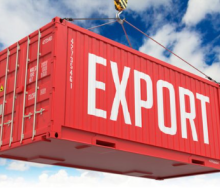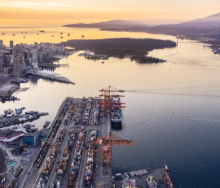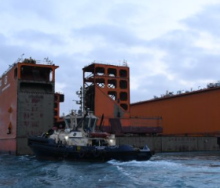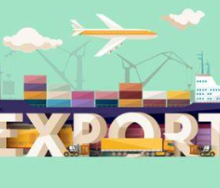As the country moves towards the end-of-April lockdown deadline, the logistics industry is holding its breath that it will not be extended further.
This comes as containers continue to pile up at ports and depots at an alarming rate.
According to Detlev Duve, managing director of Dachser SA, while the industry has welcomed the move by government to allow ports to move and clear both essential and non-essential cargo – after initially placing a ban on non-essential goods – the impact has not been lost.
“The depots are filling up and we are running out of capacity quickly,” he said.
Only containers with essential goods are allowed to be unpacked at present which means all other containers arriving in the country are being stored in depots and registered areas at present.
“There is, however, only so much space available,” said Duve. “While most of the shipping lines and other stakeholders have come to the party and reduced demurrage and storage rates, there is uncertainty about how much all of this is costing clients.”
He said if the lockdown were to be extended without allowing for the unpacking of non-essential cargo there would simply not be enough space to store containers.
It was also impacting on empty container numbers adding to the container shortage which is being experienced around the world.
“We won’t necessarily see that shortage in South Africa because we import more than we export, but it could reach that stage.”
Duve said on the airfreight side all non-essential cargo also had to be stored until after the lockdown.
“Unless we can start unpacking these containers we are looking at congestion across the board in the logistics supply chain. Already carrier haulage is overbooked and there is not enough availability to move containers to storage depots while merchant haul truckers are not willing to pick up non-essential goods as they are not certain whether they are allowed to transport this cargo at present.”
He said relieving any of the pressure on the system was impossible until there was greater clarity about the current lockdown and the way forward.
“For logistics to work, the entire chain has to function uninterrupted or it clogs up very quickly.”
He said the current situation was also affecting cash flow. “Our industry bills for containers on delivery. With non-essential cargo not being delivered the question is can we bill for it? Will companies pay for cargo that has yet to arrive on their doorstep?”
And the cash flow problem would affect most companies - not just in the logistics sector, he added.
“Due to the economic conditions in the country over the past few years, far too many companies have been operating from hand to mouth,” he said. “Indicators are that clients are going to start calling for payment extensions to allow them to turn over containers that have been backlogged first to generate the cash required to pay for stock ordered prior to this pandemic.”
Effectively this would cause a complete lag in the flow of cash between importers and the logistics sector.
“On top of that we will have to contend with the impact of the global economic situation.”
Dachser South Africa, as an essential service provider, has continued handling medical and essential services with a dedicated team of home-based office staff and skeleton staff at all of its depots and local delivery centres . The entire supply chain from overseas through customs up to the client’s destination is fully operational and working well.













